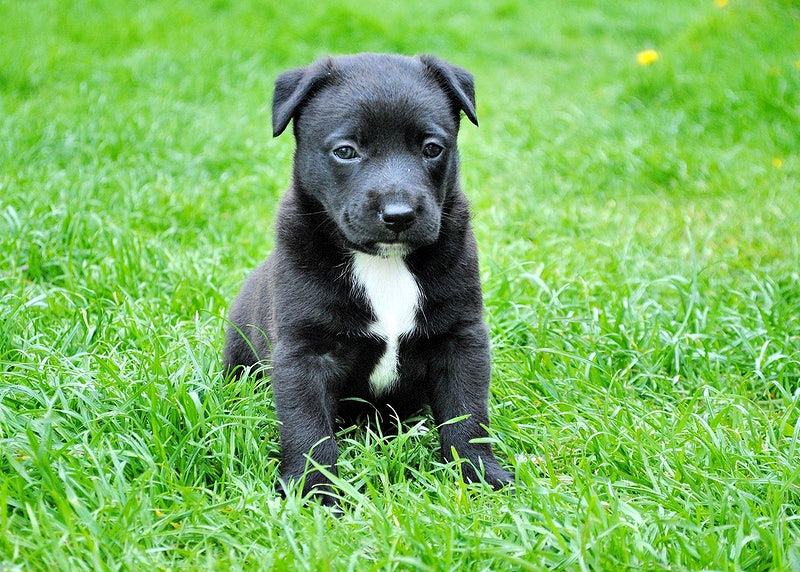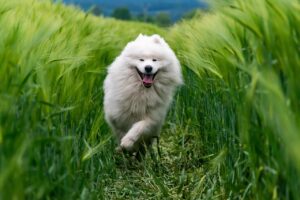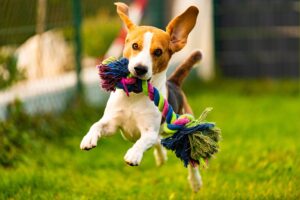Potty training your puppy is an essential task that every dog owner faces. With the right techniques, patience, and a structured approach, it’s possible to teach your puppy to eliminate in the right place in just seven days.
Whether you’re using potty pads, living in an apartment, or trying to train a puppy to go outside, this guide covers everything you need to know. Let’s dive into the process of how to toilet train a puppy in 7 days.
Table of Contents
Day 1: Preparation and Setting Up a Routine
Before starting the training process, preparation is key. You’ll need the right tools, a consistent schedule, and a clear understanding of your puppy’s needs.
Supplies You’ll Need
- Crate or Playpen: Helps your puppy learn bladder control and prevents accidents when unsupervised.
- Potty Pads: Perfect for indoor potty training or for apartment dwellers.
- Leash and Collar: Essential for taking your puppy outside.
- Enzymatic Cleaner: Removes odors from accidents to discourage repeat offenses.
- Treats and Rewards: Use these for positive reinforcement.
Establishing a Routine
Dogs thrive on consistency. Set up a daily schedule that includes regular feeding, play, and potty breaks. For example:
- Take your puppy out first thing in the morning, after meals, and before bedtime.
- Puppies under 12 weeks old need potty breaks every 1–2 hours.
Day 2: Introduce Your Puppy to the Potty Routine
Day 2 focuses on deciding whether you’ll train your puppy to eliminate indoors (on pads) or outdoors.
How to Potty Train a Puppy on Pads
If you live in an apartment or prefer an indoor option, potty pads are a convenient solution.
- Choose a Specific Spot: Place the potty pad in a designated area that’s easily accessible to your puppy.
- Supervise and Redirect: When your puppy starts sniffing or circling, gently guide them to the pad.
- Praise Immediately: As soon as they eliminate on the pad, reward them with treats and lots of praise.
How to Potty Train a Puppy to Go Outside
If you have access to a yard or outdoor space, teaching your puppy to eliminate outside is the best long-term solution.
- Consistent Spot: Always take your puppy to the same area outside. The smell will encourage them to go there again.
- Use a Cue Word: Say “go potty” or another phrase as your puppy eliminates. This helps them associate the cue with the action.
- Reward Immediately: Use treats or verbal praise to reinforce the behavior.
Day 3: Accelerating the Training Process
By day 3, you’ll start to notice your puppy adapting to the routine. If you’re wondering how to potty train a dog in 3 days, this stage is crucial.
Increase Supervision
Watch your puppy closely for signs they need to go, such as sniffing, circling, or whining. If you see these signals:
- Quickly Take Action: Lead them to the designated potty area (pad or outdoors).
Minimize Accidents
To avoid accidents indoors, keep your puppy on a leash or in a confined area when unsupervised. Puppies are less likely to eliminate where they eat, sleep, or play.
Day 4: Tackle Common Challenges
Puppy potty training often comes with hiccups. Day 4 focuses on addressing common issues to stay on track.
How to Potty Train a Dog in 3 Days
If you want to speed up training, try the intensive method:
- Increase supervision and potty trips.
- Limit your puppy’s freedom to areas where accidents are easy to spot and clean.
- Stick to a strict feeding and watering schedule.
How to Potty Train a Puppy in an Apartment
Potty training in an apartment can be challenging due to limited outdoor access. Focus on:
- Using puppy pads or a balcony potty setup.
- Taking your puppy outside as frequently as possible to create an outdoor routine.
Day 5: Troubleshooting Common Problems
By day 5, you might encounter some challenges. Don’t worry—these are normal!
Potty Training an 8 Week Old Puppy
If you’re training a very young puppy, keep the following in mind:
- Puppies this age have limited bladder control and need frequent breaks.
- Be patient and reward even the smallest successes.
Accidents Indoors
Accidents are bound to happen during the process. Here’s how to handle them:
- Clean up the mess immediately with an enzymatic cleaner to eliminate odors.
- Avoid scolding your puppy, as this can create anxiety and make accidents worse.
Reluctance to Go Outside
If your puppy seems hesitant to eliminate outside:
- Make the outdoor space inviting by spending time there with your puppy.
- Bring potty pads outside to help transition from indoor training to outdoor training.
Day 6: Building on Progress
By now, your puppy should have a better grasp of the potty routine. Focus on reinforcing positive behaviors and eliminating bad habits.
Gradual Transition from Pads to Outdoors
If you started with potty pads, it’s time to transition your puppy to eliminating outdoors:
- Gradually move the potty pad closer to the door.
- Once your puppy is comfortable, place the pad outside.
Increase Independence
Encourage your puppy to signal when they need to go out, such as by standing near the door or barking. Reward them for these behaviors to reinforce communication.
Day 7: Mastering Potty Training
By the final day, your puppy should be well on their way to being potty trained. Here’s how to solidify their progress:
Reinforce Cue Words
Continue using a specific phrase like “go potty” each time you take your puppy to their designated area.
Monitor and Adjust the Schedule
Adjust potty breaks based on your puppy’s age and progress. Older puppies can hold their bladder longer and may need fewer breaks.
Consistency is Key
Remember, consistency is the most important factor in successful potty training. Stick to your routine, and don’t give up if your puppy has occasional setbacks.
Tips for Long-Term Potty Training Success
Even after your puppy completes the 7-day potty training plan, there are steps to ensure they continue to succeed:
Potty Training an 8-Week-Old Puppy
At 8 weeks old, puppies have tiny bladders and require frequent potty breaks. As they grow, their ability to hold it improves. Stick to the schedule and adjust as your puppy matures.
How to Train a Puppy for Accidents Indoors
Accidents happen! If your puppy has an accident:
- Stay calm and avoid scolding, which can create fear or anxiety.
- Clean the area thoroughly with an enzymatic cleaner to remove odors.
- Revisit their routine to see if adjustments are needed.
FAQs: How to Train a Puppy for Potty Success
1. How long does it take to potty train a puppy?
While some puppies adapt quickly in just 7 days, others may take a few weeks to fully master the process. Consistency is crucial.
2. Can I potty train a puppy at 8 weeks old?
Yes, 8 weeks is the perfect age to start potty training. Begin with frequent breaks and lots of positive reinforcement.
3. How do I potty train a puppy at night?
Limit water before bed, use a crate to encourage bladder control, and take your puppy out for scheduled nighttime potty breaks.
4. Can I use potty pads and train my puppy to go outside?
Yes, start with potty pads and gradually transition to outdoor training by moving the pads closer to the door and eventually outside.
5. What if my puppy has accidents indoors?
Clean up immediately with an enzymatic cleaner and avoid punishment. Instead, reinforce proper potty behavior with praise and treats.
6. Is it harder to potty train a puppy in an apartment?
Apartment training may require more frequent breaks and the use of potty pads or doggy grass patches, but it’s entirely doable with patience.
Conclusion
Potty training your puppy in 7 days is achievable with the right combination of preparation, patience, and consistency. Whether you’re teaching your puppy to use potty pads, eliminate outdoors, or adapt to apartment living, following this step-by-step guide will set you up for success. Remember, every puppy is unique, so adjust your approach based on your pet’s needs. With time and dedication, your puppy will become a well-trained, happy member of your family.
Ready to transform your pup into a well-behaved companion? 🐶✨ Join our FREE Dog Training Workshop with experts.






Pingback: How to Potty Train Your Dog or Puppy- 7 Quick Tips - Woofy Tips